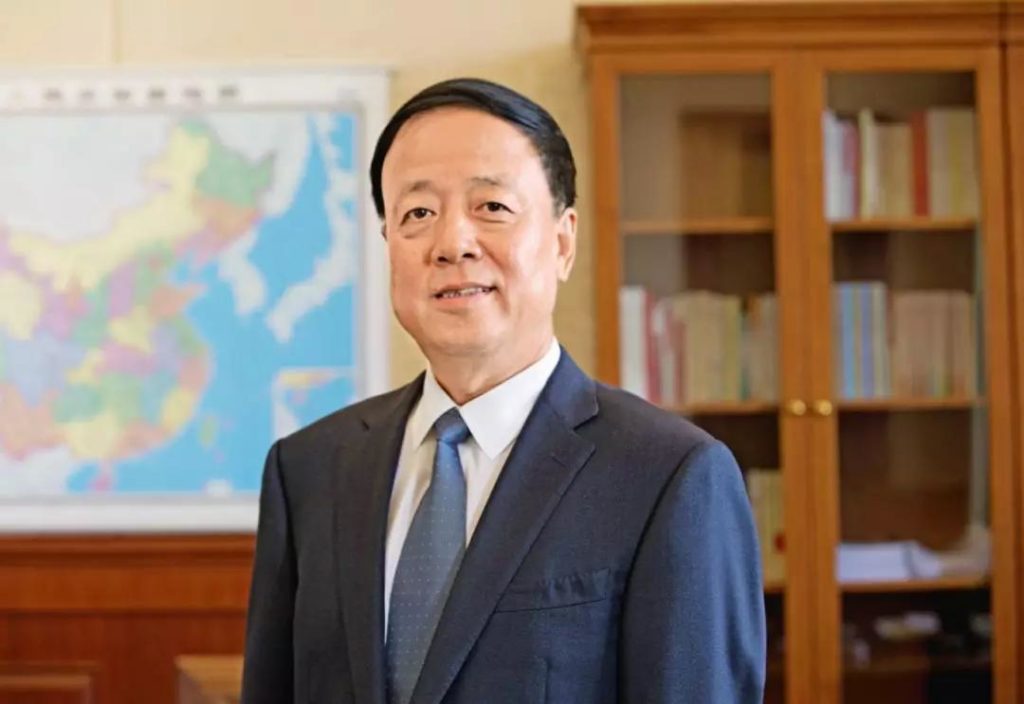PART VII: The Jiu San Society
Many people believe that in China, one political party rules everything. At the same time, a lot of people are curious to know how this great machine works, which runs a country as big as the whole of Europe and with 1.4 billion inhabitants.
In China there is also a Parliament which works much like ours. Its name is PCC : Political Consultative Conference whose standing committee is elected every 5 years. Not to be confused with NPC ( National People’s Congress), an other huge deliberative body ( next chapter)
As in European system political parties are found in main parliaments and other levels of power in China.
In Chinese PCC members are selected in and represents every level of the society in all the country and also for Overseas Chinese. PCC includes the CCP, patriots without any party affiliation and 8 major parties.
We are going to introduce these 8 parties of the PCC, the majority of which are 90 years old.
- Revolutionary Committee of the Chinese Kuomintang (RCCK)
- Nong Gong Dang Chinese Farmers & Workers Democratic Party
- China Democratic League (CDL)
- Zhi Gong Dang
- China National Democratic Construction Association (Min Jian)
- China Association for Promoting Democracy (known as Min Jin)
- JiuSan Society (literally known as Nine-Three Academic Society)
- Taiwan Democratic Self-Governing League (TDSL)
What are the powers of the PCC standing committee ? Mainly :
– participates in the state power
- participates in the negotiation of major national policies
- the election of national leaders- participates in the management of national affairs and the formulation and implementation of guidelines, policies, laws and regulations
- actively playing the role of democratic supervision for the democratization and scientific decision-making of the country
- Etc…
PCC body also consists of delegates from unions, federations, associations, nominally independent members and special committees.
PCC is chaired by a member of the politburo standing committee.
PART VII :The Jiu San Society
The Jiu San Society was founded in 1945 to commemorate the victory of the Chinese Anti-Japanese War and the Second World War on September 3, 1945. Its main purpose is to strengthen the country and enrich the people, but it must obey the national interests.
The composition of the Jiu San Society is dominated by high- and intermediate-level intellectuals in science and technology. The common occupations are teachers, physicians, engineers, etc.
As of June 2019, there were 183,710 members, among which 14,027 were from the main sectors of science and technology, higher education, medicine and health, accounting for 76.22%; 76,199 were female members, accounting for 41.48%;
In terms of political participation, Jiu San Society currently has :
– 104 members of the PCC National Committee
– 70 NPC deputies,
– 1 person is the head of the central government department (Huang Runqiu),
– 19 people served as vice-chairmen of different provincial CPPCC
– 4 people serve as deputy directors of the Standing Committee of the Provincial People’s Congress,
– 4 of them serve as vice governors or vice mayors of municipalities in the government.
In academic terms, the Jiu San Society has 150 academicians of the Chinese Academy of Sciences and the Chinese Academy of Engineering.
The first chairman:
Xu Deheng (October 17, 1890-February 8, 1990), a native of Jiujiang, Jiangxi,
Politician, educator, scholar, former Minister of Fisheries, Vice Chairman of the National Committee of the Chinese People’s Political Consultative Conference, and Vice Chairman of the Standing Committee of the National People’s Congress.
Current Chairman:
Wu Weihua (September 1956 -), male, Shanxi, Chinese plant cell physiology and molecular biologist, professor of China Agricultural University, academician of Chinese Academy of Sciences. Vice Chairman of the Standing Committee of the 13th National People’s Congress.


